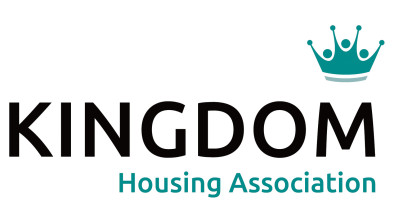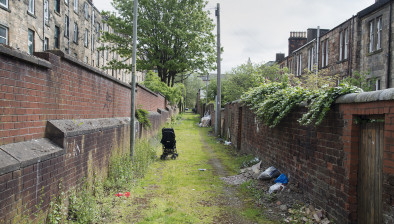Research reveals critical housing barriers for people with complex needs

Significant systemic barriers are preventing people with learning disabilities and complex needs from accessing appropriate housing across Scotland, new research published by Heriot-Watt University today has revealed.
The report, which was commissioned by NHS Greater Glasgow & Clyde Specialist Learning Disability Services alongside housing partners, highlights issues with planning, stakeholder collaboration and access to resources may result in many people being placed in inappropriate accommodation or needing to stay in care settings longer than desired.
Titled ‘Housing for Complex Needs’, the research found that despite more than two decades of government policy promoting community-based living for people with learning disabilities, around 1,300 individuals still face challenges with accessing accommodation appropriate to their needs.
Dr Sacha Hasan from The Institute for Place, Environment and Society at Heriot-Watt University, said: “Our findings demonstrate that while the willingness to collaborate often exists, structural barriers and stretched resources prevent effective solutions. The current landscape across Scotland is varied and inconsistent, with outcomes dependent on local relationships, funding models, and housing availability in each area.
“What’s particularly concerning is that we’ve been discussing this same policy agenda for over 20 years, yet many people are still experiencing inappropriate out-of-area placements or delayed hospital discharges. Our research found that fragmented funding streams, limited understanding of legislation, and cumbersome commissioning processes are creating substantial barriers to implementing what should be a fundamental human right – appropriate housing in local communities. The reality is a postcode lottery which is unsustainable and damaging for our most vulnerable residents in Scotland.”
Tom Kelly, head of adult services at NHS Greater Glasgow & Clyde Specialist Learning Disability Service, said: “Access to good-quality accommodation in an appropriate setting is essential to our health and wellbeing, but this is particularly true among the most vulnerable members of our communities.
“NHS Greater Glasgow and Clyde works closely with local authorities, health and social care partnerships and other stakeholders to help ensure people do not need to be in a hospital setting longer than they need to, and that the appropriate support is available to them when they leave.
“This research will be an important addition to our and others’ understanding and we would like to thank all those who have been involved in putting together these findings. ”
The report identifies three key areas that require urgent action:
- Structural Factors: Including social housing market constraints, inadequate planning frameworks, and inconsistent interpretation of tenancy agreements
- Resources: Highlighting challenges in funding, time constraints, and staffing shortages
- Collaborative Working: Revealing significant issues with data collection and information sharing between housing and healthcare providers
A critical recommendation within the report calls for the Dynamic Support Register (DSR) – a tool for monitoring vulnerable individuals - to be extended to include housing stakeholders, who are currently not required to be part of planning processes.
The research also emphasises the need for an appropriate national mechanism to mandate collaboration between housing and health and social care sectors to deliver streamlined community-based housing solutions.
The report comes as Scotland faces what has been declared a housing emergency by the Scottish Parliament in May 2024, with researchers noting this crisis “disproportionately impacts people with learning disabilities, including those with behaviour which may be perceived as challenging.”
Dr Hasan added: “Too often, successful transitions depend on informal networks and individual commitment rather than robust systems. What’s needed is a fundamental change in how these services are planned and commissioned, with housing given equal importance to health and social care in an integrated approach.”
The report calls on senior leaders and decision makers within government, housing, commissioning, advocacy, or health and social care roles to influence and contribute to urgent change going forward.
The comprehensive report involved interviews and focus groups with commissioners, policy experts, registered social landlords and care providers across Scotland.









